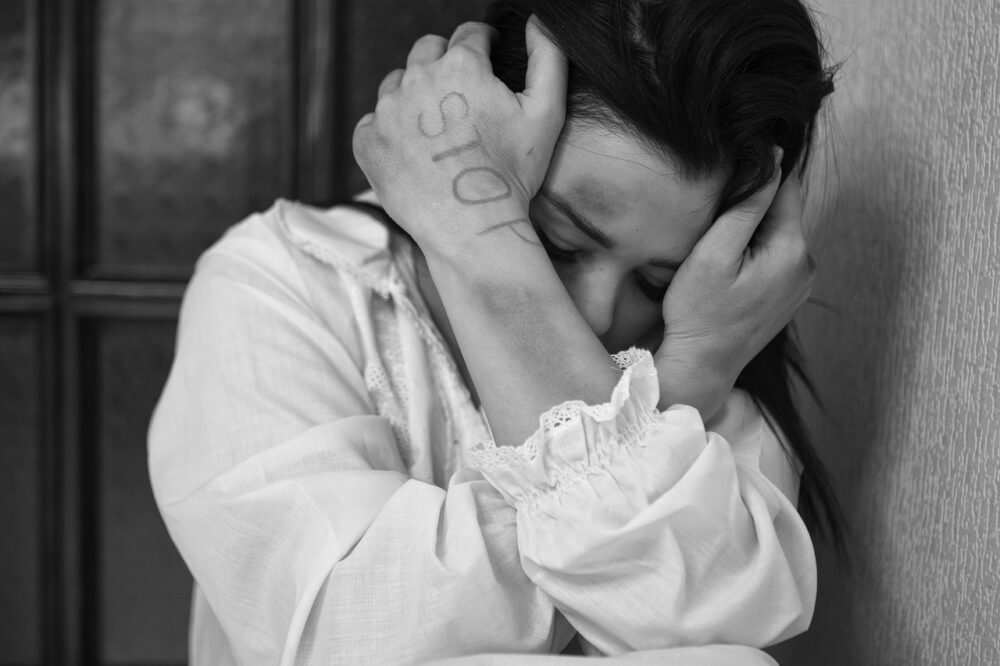
We can all agree that there are many dysfunctional families in today’s modern society and that families aren’t perfect. Still, there’s a significant difference regarding parental narcissistic abuse and how the scapegoat role forms in the family. I have already covered this topic briefly in another post you can find here: 5 Alarming Signs of Parental Narcissistic Abuse. When it comes to the family scapegoat, it doesn’t matter how kind, caring, loving, and intelligent you are. If you have a narcissistic parent, they will always find a way to blame you or someone else for their mistakes and typically for either telling the truth or standing up against their abuse. The scapegoat role is actually very prevalent in dysfunctional families.
The family scapegoat is basically the person who gets blamed for the family being screwed up and causing all the conflicts. Narcissistic parents do this in two ways. You can be scapegoated and blamed for their actions directly with verbal attacks and accusations or through subtle putdowns and, at times, even rejection for who you are or your basic needs as another family member. These problems, unfortunately, don’t end when you turn 18. You can still be deeply affected and blamed your entire life and suffer the psychological consequences of this kind of abuse, but not even be fully aware of what is happening to you on so many levels. Many people unconsciously accept this form of abuse and internalize it, but with this post, I aim to wake you up from this slumber so you can reclaim your power and start healing. Remember, your narcissistic abuser cannot take responsibility for who they are and their actions. And this is why you are chosen as the family scapegoat. Narcissistic abusers can never admit to themselves that they are the ones who have caused the family to be screwed up, but turn to their kids, the scapegoat in particular, and say it’s all your fault.
You Are Not Your Abusers’ Opinion of You | The Family Scapegoat

Remember that all those messed-up opinions of you are simply the projection of your abuser’s mind. Narcissistic abusers are constantly projecting their sins onto others. More than likely, if you are the family scapegoat, you were not respected, seen, or recognized for who you are or your needs. More than likely, you did not get recognized for all your uniqueness, talents, and what’s lovable about you. Unfortunately, this causes severe harm because if you are the family scapegoat, your brain and thinking change, and not for the better. Typically, because scapegoats aren’t seen and don’t get the validation they need, they fall into very negative relationship patterns and get involved with uncaring, unkind people who play out the same blaming patterns they experienced in childhood.
Regardless, you can start healing now because it is never too late. You can heal by learning to validate yourself and realize your own worth. As the scapegoat, what needs to get through to you is that your abuser’s opinions are false and that you are indeed a good person who just wanted to love and be loved but instead was abused. And yes, I genuinely mean that. It’s hard to believe that you are a good person at your core when you are scapegoated your entire life. Unfortunately, you have carried their burdens your whole life because the abusers want you to carry their burdens and wash their conscience clean. You are not who the abuser says you are. They are who they say you are. Once you understand that your feelings are valid and that you are dealing with a dysfunctional family who is scapegoating you, you can start the process of reclaiming your power. And you do that by not identifying with their absurd accusations and projections of their mind.
Changing Your Perception of Self

You can heal by breaking free from these toxic patterns of blaming yourself and letting go of people who reflect the same kind of abuse you experienced or are currently experiencing within your family dynamic. It’s essential to start the healing process by seeing your worth and knowing that you deserve good in life because you are and have always been good, even for acknowledging and standing up to your abuser. You deserve to be accepted, heard, and seen. It’s also crucial to surround yourself with healthy people who will admire, appreciate, love you for who you are, and give you the same validation you seek from, unfortunately, a dysfunctional family who cannot give it to you.
It will take considerable effort to heal because you may need to stay connected to your family due to your primal needs or family and cultural tradition. And by healing, I mean learning to create stronger boundaries for yourself and no longer identify with their projections and opinions of you. We can say that this is a form of alchemy and inner transformation occurring once your perception of self changes and you start to view yourself as you are and not as your abuser’s projection of you. When your perception of self changes and you finally realize that you have always been worthy and deserving of good, you’ll begin to attract more good and align with more positive things in life. The outer world begins to reflect the inner world, helping you manifest the good that your heart desires. Often, people with narcissistic and various personality disorders are competitive with you. If they see admirable qualities in you that they themselves don’t have, they will try and bring you down to their level. If you are the family scapegoat, you need to understand that you are part of a dysfunctional family that hurts people, and you are not the problem.

